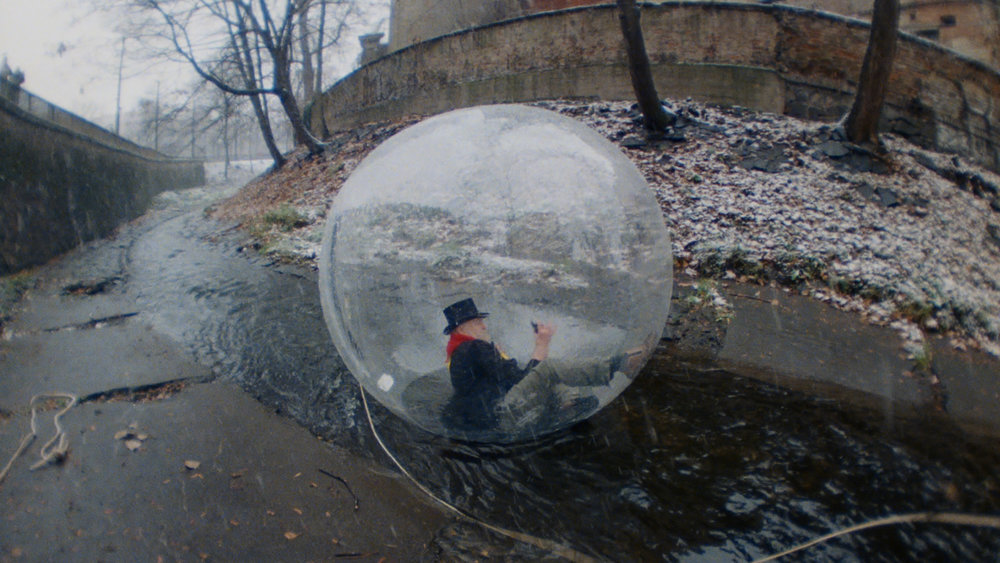The (red) Perspectives section is where you’ll find the theme programmes of International Film Festival Rotterdam (IFFR). Here we approach the medium of film from specific angles. IFFR announces four of the theme programmes of 2020 below.
Festival director Bero Beyer: “These theme programmes bring together works that pose relevant and urgent sociopolitical questions through film. They surprise us by bringing out new connections and stimulating new ways of seeing.“
Non-binary experiences of gender have existed in Asia and elsewhere long before western LGBTQ culture emerged. Sacred Beings explores contemporary queer culture by reexamining gender-fluidity and spiritualities in Asian cultures. Short films, installations and live performances will connect the past, present, and possible future of Asian queer culture. Sacred Beings is the result of the inaugural edition of Young Curators, an initiative to open up IFFR’s programme to young talent.
G/D THYSELF: Spirit Strategy On Raising Free Black Children by The Ummah Chroma (theme programme: Synergetic)
Working together is the future. Synergetic shows the potential of collectives that challenge the mainstream narrative with alternative ways of working and seeing. The multidisciplinary programme features, among many others, the installation G/D THYSELF: Spirit Strategy On Raising Free Black Children by The Ummah Chroma (in collaboration with Het Nieuwe Instituut) and IFFR-commissioned films by African collectives.
The programme looks back, examining the evolution of the independent cinema and exhibition scene in Europe (in collaboration with the Kino Climates network), and to the future, with workshops in The Collective Space (a collaboration with the Ghetto Film School, the Netherlands Film Academy and Rotterdam-based communities).
Communism and the Net or the End of Representative Democracy by Karel Vachek (theme programme: The Tyger Burns)
The Tyger Burns is a contemporary film programme about the gaze of the old filmmaker, comprising a wide variety of new films by directors who were already active when IFFR first started in 1972. From Hara Kazuo's film about a Japanese cross-dressing politician, Reiwa Uprising, to Andrei Smirnov's 1950s Russian bohemia drama The Frenchman and Annette Apon's account of the mysterious Leonie Brandt, Leonie, actrice en spionne – all films show a creative urge still burning brightly. Because our times, our Zeitgeist, does not only belong to the young.
Waiting for a film to start, it has already begun – in our mind. This programme cultivates the viewer’s patience, both in the cinema and beyond. Next to feature films and short-film compilations dealing with the productive notion of ‘waiting’, there will be a waiting room (magazines included) where short films are screened at irregular intervals. A few times per day, a door opens to another space for a surprise event.
Contact details
Related news
Hubert Bals Fund and Brazilian partners Spcine, RioFilme and Projeto Paradiso launch new development support initiative
Pilot initiative will support up to nine Brazilian fiction film projects in early development.
The Displacement Film Fund spearheaded by Cate Blanchett and managed by IFFR’s Hubert Bals Fund unveils recipient fil...
The Displacement Film Fund spearheaded by Cate Blanchett and managed by IFFR’s Hubert Bals Fund unveils recipient filmmakers and projects for pilot scheme
International Film Festival Rotterdam closes 54th edition with 12% increase in visitor numbers and ticket sales, and ...
Walter Salles’ I’m Still Here wins coveted Audience Award for 2025
International Film Festival Rotterdam reveals winners of 2025 Tiger Award and Big Screen Award
Fiume o morte! and Raptures take IFFR 2025’s Top Awards
International Film Festival Rotterdam unveils 2025 Tiger Short Competition winners
Three titles receive equal Tiger Short Awards, each worth €5,000, KNF Award winner and nomination for European Short Film Award also announced




